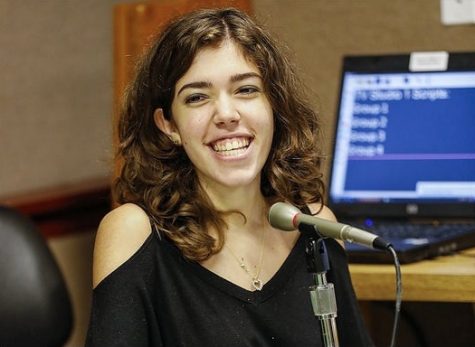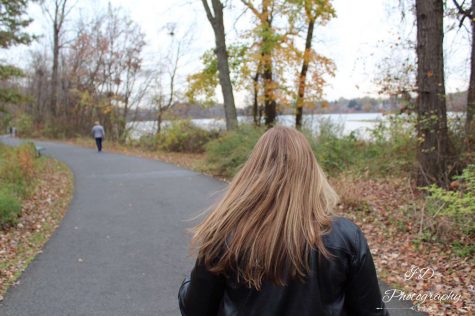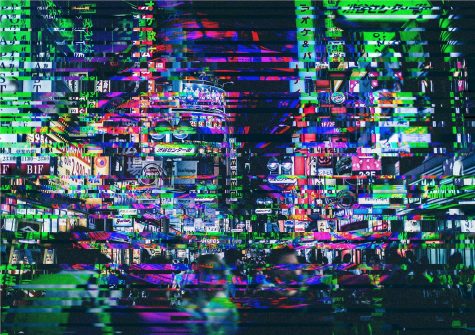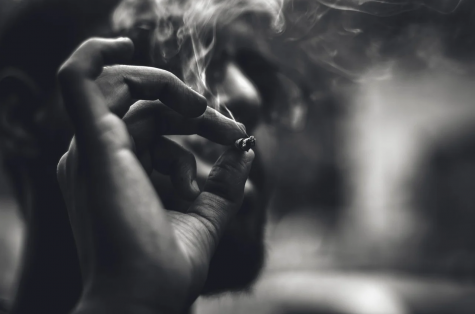More Visibility, More Acceptance
October 11, 2019
It is incredible how the world we live in is beginning to give attention to multiple minorities.
However, as a sister of someone with disabilities, I feel that there is one minority that deserves more attention: the special needs community.
Maysoon Zayid would agree. In fact, she champions the concept that this may indeed be an overlooked minority. Zayid is a famous comedian as well as an advocate for refugees and people with disabilities. She happens to have cerebral palsy.
“People with disabilities are the largest minority in the world,” Zayid said, “and we are the most underrepresented in entertainment.”
This was said during a TED Talk in 2014.
Now, we are in 2019.
In 2018, Lee Ridley won Britain’s Got Talent (BGT). Ridley is a comedian who uses the stage name, the “Lost Voice Guy.” Ridley is non-verbal, so he cannot speak. However, he proves that people with disabilities do indeed have a voice, contrary to what his name may suggest. Ridley uses an augmentative communication device very much like a computer to communicate and deliver his comedy. His jokes not only find the humor in his own condition and society’s perceptions of it, but moreover, they draw attention to how aspirations are not limited based on ability level.
In his BGT audition, the audience already catches a glimpse of Ridley’s character.
“Ladies and gentlemen, as you may be able to tell, I am a struggling stand-up comedian, who also struggles to stand up,” Ridley said during his audition, prompting instant laughter from the audience. Although the joke is funny, it is quite powerful; the obstacles Ridley faces on a physical level are differentiated from those on a career level. In other words, he is not a “struggling stand-up comedian” because of his condition; perhaps he is because of how society views people with disabilities.
My brother Michael is non-verbal and uses an augmentative device, and I am honestly blessed to be his sister. Why? I still know his emotions, laugh with him through his humor, sing to him, and share memories to spark his smiles. Michael may have the communicative disorder of oral motor apraxia, but we are siblings nonetheless. Ridley reminds me of my brother, and to me, he will forever be an emblem of the special needs community and its capabilities.
Most recently, in 2019, musician Kodi Lee won America’s Got Talent (AGT). Lee happens to be a blind singer and pianist with autism. It was palpable how from his AGT audition alone, Lee was going to shatter boundaries in the competition. His beautiful rendition of Donny Hathaway’s “A Song for You” brought the audience to its feet and won him a golden buzzer from judge Gabrielle Union, as a passage straight to competing in the live shows.
It is amazing how these people are recognized for their talents despite the conditions that they have.
From watching auditions like those of Ridley and Lee, people typically are depicted with visible shock in the audience. This in itself demonstrates deep prejudices and expectations people have for those who are disabled, and that their abilities are not recognized as much as they should be. With more inclusivity, however, it won’t seem shocking that someone with a disability is competing in a show.
There is a non-profit organization which helps build people’s awareness of the special needs community. It is called Special Books for Special Kids (SBSK). Chris Ulmer, the organization’s founder, regularly uploads videos to the SBSK YouTube channel in which he interviews people with special needs and their families. It is incredible to see how these people are highlighted for their accomplishments, aspirations, passions, relationships, and thoughts while also illustrating the struggles they have. In fact, they are just like us.
These are the types of videos people need to pay more attention to on the Internet. Some of the interviewees are not only marginalized for their conditions, but also face discrimination for their race or sexual orientation. In addition, the struggles of all of his interviewees are made clear so there is more understanding; for instance, Ulmer interviews people who consume their food through a tube and who are bedridden. Nonetheless, they wear a smile. The channel is educational and shows how alike we all are.
Tatiana A. Lee is the subject of one of SBSK’s videos, “Making It in Hollywood with a Disability (Spina Bifida).” Due to Tatiana’s spina bifida, she cannot walk and is in a wheelchair. Nevertheless, Tatiana is an actress and a model. Her condition does not make her dreams impossible for she pursues them with aspiration, but she highlights how her condition comes with multiple stereotypes.
“People automatically assume I’m not educated, I have no talent. I have no voice. I can’t do anything,” Tatiana said in the video, “And so I constantly have to prove that I am capable of doing something. I am educated. I do bring something to the table. I do have talent and all these different things that people don’t think I have.”
Thus, Tatiana echoes the sentiments of Zayid. One idea that both women discussed is how a character with a disability, such as a character who cannot walk, should be played by an actor or actress with that same disability, who cannot walk. This is a revolutionary concept in that it challenges the norms and traditions of Hollywood, having people with conditions played by people who lack the conditions or are even renowned actors, which is emphasized in Tatiana’s interview. At the same time, it is imperative because as Tatiana suggests, people with disabilities cannot ascend in Hollywood if they are not even given the opportunity. This is not only applicable to the limited job market for people with disabilities in Hollywood that Tatiana describes, but in any industry. What restricts these people? Society’s ignorance of the special needs community as a whole, not their conditions.
“And I’ve been to a lot of events where people discuss diversity and inclusion…And never mention disability,” Tatiana said in the video, “We are 20% of the entire population. That is the hugest minority and we’re almost always forgotten.”
She feels that if more people like her were on the big screen, that society would begin to accept them as people.
Although Zayid and Tatiana share similar views, it is sad how this video was uploaded five years after Zayid’s TED Talk, which shows that progress still needs to be made.
Over the course of my life, I have witnessed my brother Michael be discriminated against by children and adults alike. The word “retarded” is used quite loosely in this culture, and it has developed such negative connotations that I despise it entirely and find it very disrespectful. Children are not to be blamed for they are still young and can learn; it is the parents who need to be blamed for instilling prejudice in their children and/or not correcting them. If they allow their children to politely speak to people with disabilities and ask questions, that creates more knowledge and acceptance.
“Perhaps if there were more positive images, it would foster less hate on the Internet,” Zayid said.
Despite the exposure the special needs community still needs, there is truth in this statement. Zayid, Ridley, Lee, and Tatiana are just a few of the people with special needs who are recognized for their gifts. Imagine how many more there are. And yet, even they face discrimination. Nonetheless, they all provide one hope: that with more visibility, there will indeed be more acceptance.








